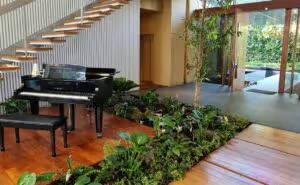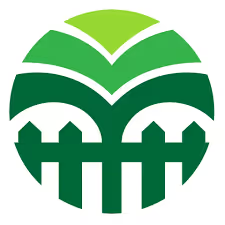Own a house and looking to elevate your landscape or garden? Look no further! We've curated a list of the top 8 landscaping companies in Singapore for 2024, ready to transform your outdoor space into a lush oasis.Singapore’s climate, with its abundant sunshine, rain, and humidity, can pose a challenge for maintaining a thriving garden. But don’t worry, these landscaping experts have mastered the art of creating stunning gardens that flourish year-round, no matter the weather.
Tip! Maximise your savings potential by installing solar panels for your home. Use our solar simulator to receive a free quote today!
Whether you dream of a tranquil backyard retreat, a vibrant balcony overflowing with blooms, or a rooftop paradise, there’s a landscaping professional in Singapore who can bring your vision to life.
And to make your outdoor haven even more sustainable, why not consider solar panels? They’re a great way to reduce your carbon footprint and save on energy costs. Get a free solar quote with our calculator and see how you can make your home greener.
Please note that the following list of landscaping companies is in alphabetical order and does not reflect a ranking of performance or capability.
Abundance Landscape Pte Ltd

Abundance Landscape is a fresh, innovative landscaping company dedicated to transforming your outdoor spaces into thriving oases. Aligned with Singapore’s “City in a Garden” vision, they offer a range of services, including landscape design, maintenance, and specialised care like tree pruning and pond maintenance.
What makes Abundance Landscape stand out is their customer-first approach. They offer free consultations, transparent pricing, and a team of creative professionals committed to making your landscaping experience enjoyable and stress-free. Whether you’re a homeowner or a business, Abundance Landscape is ready to bring your garden dreams to life.

Contact: Information Details
Website: https://abundance-landscape.com/
Email: sales@abundance-landscape.com
Phone: +65 9121 8198
Address: Lip Hing Industrial Building 3 Pemimpin Drive #06-04C Singapore 576147
Chin Ling Nursery

In contrast, SP tariffs have shown much greater stability. For SCT users, this translates into consistent and predictable credits, making SCT an appealing option for those who prefer consistent returns on their energy exports. However, there have been times when either USEP or SP rates offered better returns for solar exports, so it’s wise to periodically review which scheme maximises your electricity saving.
- The longer the warranty, the more confidence the manufacturer has in the reliability of the product. Look for warranties that cover the length of your investment, typically around 20 years for both product and performance.
- Make sure the warranty covers all important components of your system— like the panels, inverters, and monitoring systems. Good coverage reduces the chance of extra costs of a part fails unexpectedly.
- A transferable warranty can increase your property’s value. If you sell your house, some warranties transfer automatically to the new owner, while others might require paperwork. This feature makes your home more appealing and can help you sell faster, knowing that the solar system is protected.
- Understanding what the warranty doesn’t cover is just as important as knowing what it does. For instance, in Singapore, factors like high humidity and salt exposure near coastal areas might cause damage to panels unless they are specifically rated for those conditions. Knowing these exclusions helps you avoid mistakes that could void your warranty
Types Of Solar Panel Warranty
There are a few types of warranties to consider when looking into solar panels. Each one covers different parts of your system, so it’s important to understand what each one does:
- Product Warranty
This covers defects in the solar panels themselves. Typically, these warranties last between 10 to 15 years, with some manufacturers offering up to 25 years. If there’s a manufacturing flaw, the panels will either be repaired or replaced at no extra cost. However, product warranties don’t cover things like diagnosing problems—only repairs or replacements if the issue is due to a defect. - Workmanship Warranty
This one covers problems that might happen because of the installation process, such as issues with mounting systems, inverters, and other components. Workmanship warranties typically range from 1 to 10 years. In the first 1 to 2 years (called the Defect Liability Period), the installer is responsible for fixing defects related to their work. However, regular maintenance isn’t usually included in this period. - Performance Warranty
This type of warranty guarantees that your solar panels will produce a certain amount of energy over time. As solar panels naturally degrade, this warranty ensures they continue performing efficiently throughout their lifespan. Performance warranties typically last between 20 to 25 years. For example, they might guarantee that after 10 years, your panels will still generate at least 90% of their original capacity, and after 25 years, at least 80%. This is key to protecting your long-term investment.
Key Factors To Consider In Solar Panel Warranty
As interest in solar energy grows, concerns about the safety of solar panels, particularly the risk of solar panel fire, have emerged. While such concerns are understandable, it is crucial to recognise that incidents involving solar panel fires are extremely rare. With proper installation and regular maintenance, solar energy systems remain one of the safest and most reliable solutions for sustainable power, offering significant environmental and financial benefits. Advancements in technology and adherence to stringent safety protocols have further minimised these risks, reinforcing solar energy as a smart choice for homes and businesses alike.
Understanding Solar Panel Fire Risks: Why Do Solar Panel Fires Happen?
Solar panel fires are usually the result of preventable issues. Common causes include poor installation practices, inferior components, and faulty wiring or connectors. When components fail, electricity can “arc” and create sparks, potentially leading to a fire. While these incidents often make headlines, the truth is that the risk of fire is very low when solar systems are installed and maintained correctly by qualified professionals. By choosing high quality materials, following proper installation guidelines, and conducting regular inspections, the risk can be minimisedsignificantly. With advancements in technology and adherence to strict safety protocols, solar energy remains a safe and efficient choice for your home.
How Solar Panels Are Designed To Prevent Fires: Built For Safety
Modern solar panels are designed with safety in mind. They undergo rigorous testing to meet global safety standards to reduce risk of solar panel fire, such as those set by International Electrotechnical Commission (IEC) and Underwriters Laboratories (UL). These certifications ensure the panels are resistant to weather conditions, electrical faults, and the risk of fires. Solar panels are also rated for fire resistance, with classifications (Class A, B, or C), indicating their ability to resist the spread of flames.
The solar industry continuously invests in research and innovation, ensuring that systems are not only efficient but also exceed safety expectations. Many panels now feature advanced technologies like arc-fault detection and rapid shutdown capabilities. These systems immediately cut off power during emergencies, preventing potential hazards from escalating. Paired with quality materials, proper installation, and regular maintenance, these safety measures ensure that solar systems are both secure and reliable.
Common Causes Of Solar Panel Fire
While solar panel are generally very safe, there are a few factors that can increase fire risk if not addressed. Here’s a look at the most common causes of solar panel fire:
Case Study: Solar Panel Safety In Singapore
Singapore has taken clear steps to ensure that solar panel systems on rooftops meet strict fire safety standards. The Singapore Civil Defence Force (SCDF) sets these guidelines in their “Fire Safety Requirements for Solar Photo-Voltaic (PV) Installations on Roof,” covering critical factors like safe rooftop access, fire-resistant equipment, and proper installation methods.
A notable example occurred on August 14, 2024, when a fire broke out in a cluster of solar panels (about 15m by 10m) on the zinc roof of a factory at 11 Kian Teck Road. The SCDF quickly evacuated 76 workers and extinguished the blaze with no injuries reported. Following the incident, the SCDF reiterated the importance of meeting established standards. For instance, solar PV modules must meet at least a Class C fire resistance rating, and all wiring and switchboards must comply with Singapore’s Code of Practice for Electrical Installations (SS CP5).
To further strengthen safety measures, the SCDF introduced the Circular Fire Code 2023, which updates requirements for new installations. This ensures that all solar panel systems in Singapore not only generate clean, renewable energy, but also operate under the highest fire safety protocols.

